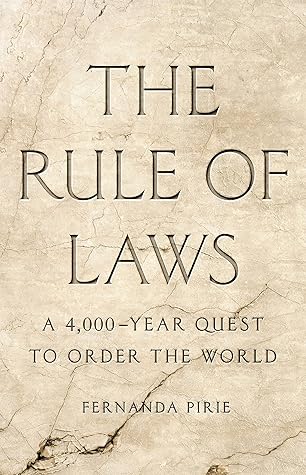While the European doctrine of ‘reasonable doubt’ and the use of oaths, judicial torture, and juries helped judges decide when blood punishment was justified, the Islamic rules told judges when they ought to harbour doubts. They reflected the jurists’, rather than the judges’, anxieties about the morality of punishment. Instead of providing moral comfort, they injected an element of uncertainty into the judges’ work, insisting on the problematic nature of a very wide range of cases.
Welcome back. Just a moment while we sign you in to your Goodreads account.


